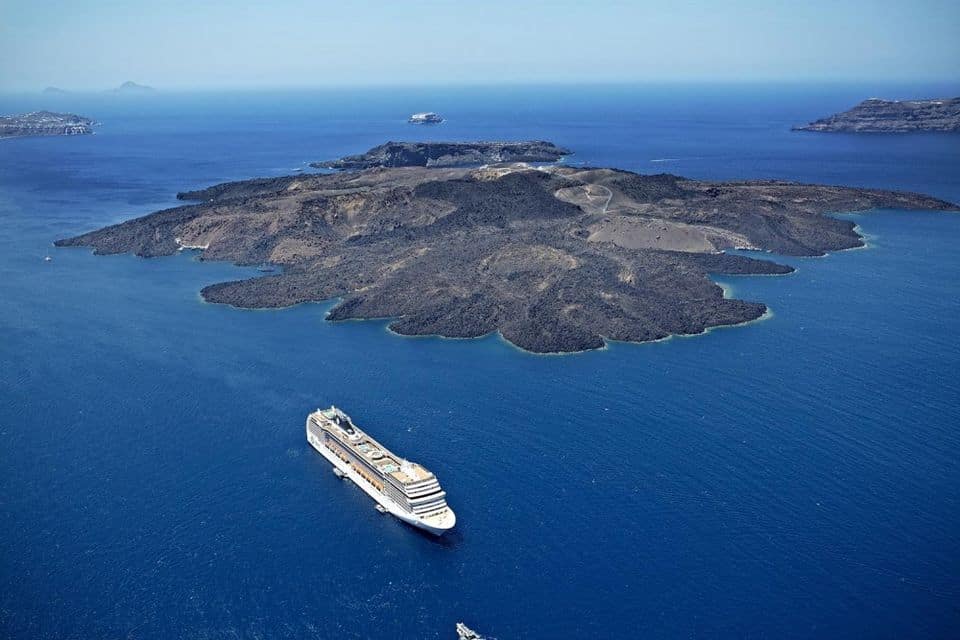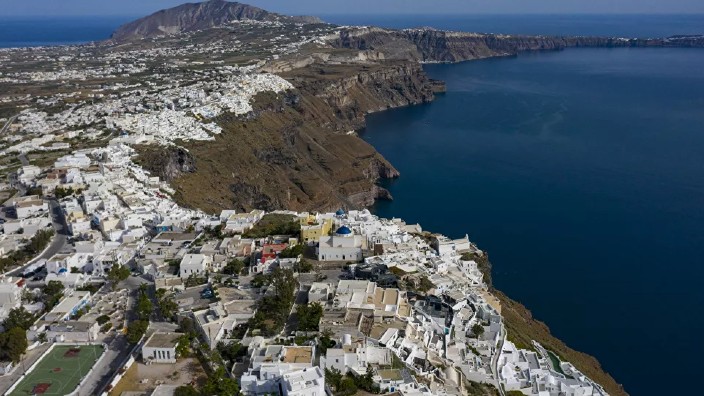A comparative study on the Greek island of Santorini by a team of scientists from among others, the University of Oxford and University of London, revealed that when the sea level falls more than 40 metres below the present-day level, a volcanic eruption is triggered.
The team observed the activity of the volcano and compared it with the sea levels recorded over the past 360,000 years. The team also found that when the sea level is higher, the volcano becomes quiet.
Santorini, a beautiful island in the southern Aegean Sea, is the remnant of a volcanic caldera. The island, part of an archipelago, was the site of one of the largest volcanic eruptions in recorded history – the Minoan eruption that occurred around 3,600 years ago.
Although it is now a water-filled caldera (a hollow which occurs when a volcano erupts and then collapses), Santorini is still the most active volcanic centre in the South Aegean Volcanic Arc.
With varying degrees of explosivity, Santorini has erupted many times. According to Sputnik, there have been at least 12 large explosive eruptions, of which around four were caldera-forming.

Historians suggest that the entire volcano used to be above water, but a violent eruption around 1600 BC caused the volcano to cave in partially and led to the formation of a lagoon.
To understand the effect sea levels have on volcanic eruptions, the team designed a computer-simulated version of Santorini’s magma chamber. It sits about 4km beneath the volcano’s surface.
Inside the simulation, the crust above the magma chamber fragmented whenever the sea level dropped at least 40 metres below.
“That allows the magma that’s stored under the volcano to move up through these fractures and make its way to the surface,” study co-author Christopher Satow, a physical geographer at Oxford Brookes University in England, said.
The magma chamber’s simulation collected data that suggested that it should take about 13,000 years for the cracks to reach the surface and awaken the volcano.
Source: Sputnik.

